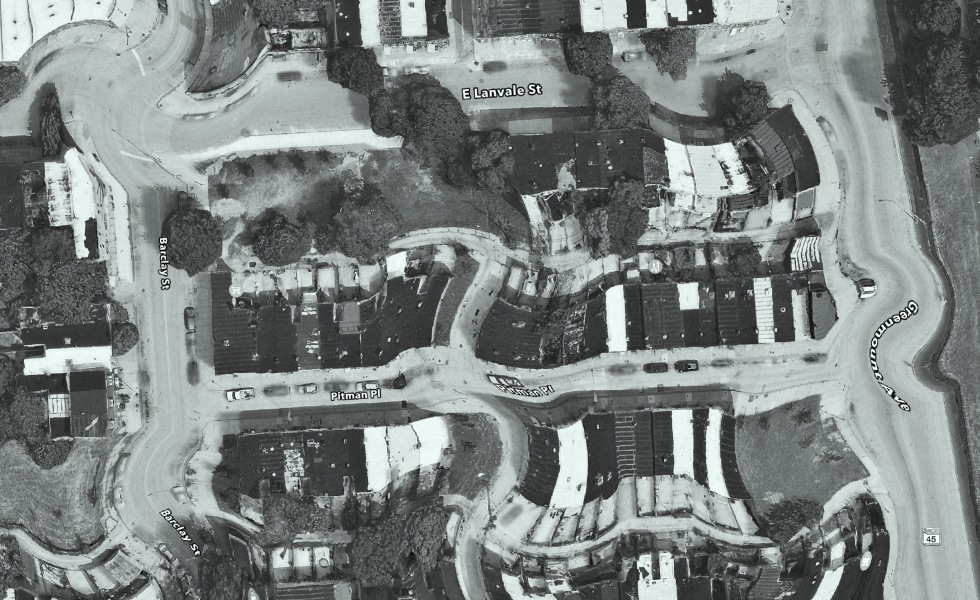Rest In Peace, Victim Number 5

Back in November of 2013, the Baltimore Police Department had a raid where they arrested a large group of members of Baltimore’s “Black Guerilla Family” gang. One of those arrested somehow managed to escape with handcuffs on and was being sought by the Baltimore Police Department shortly after the escape.
The news article about the escape mentioned that three of those being arrested that day “have addresses listed in the 400 block of Pittman Pl.”
On January 7, the fifth homicide of 2016 in Baltimore was reported to have happened in the 300 block of East Lanvale Street, after police were called for shots fired at the 400 block of Pittman Place. The victim was a 25 year old Black man by the name of Tavon Lee. As you can see from the reports of what happened at that raid in 2013 and the Twitter message from the Baltimore Police Department in 2013, there is good evidence that the two are the same person, that Tavon Lee is “number five” for 2016.
In 2015, there were 344 homicides in Baltimore. It was a record year, with a per capita rate of about 55 homicides per 100,000 Baltimore residents for the year. The city had not seen such a high homicide rate since the crack cocaine epidemic in the 1990’s and the turf wars that it triggered. Number Five, it seems, is only the beginning for 2016. Chances are that only his friends and family, and maybe the person(s) who killed him, will remember him by the time the year is over.
This particular case got me thinking about the opportunities in life — or the lack thereof — for us to straighten out our lives. How many warnings does it take before we realize that maybe we need to get out of our environment, or that maybe we are not heading in the right direction. When it comes to environment, however, that whole anecdote about the frog in boiling water is very true.
In case you haven’t heard the anecdote, it goes like this: A frog put into boiling water will jump right out, because the water is suddenly hot. However, put the frog in cold water and then raise the temperature slowly to where the water boils and the frog will get cooked to death. (It’s an anecdote that doesn’t have a lot of base in science.)
Humans are a lot like the frogs in the anecdote because we are not very good at perceiving small, gradual changes over time to our environment, or ourselves. Little by little, we grab on to a bad habit or two and, before we know it, we’ve gained too much weight, done a lot of damage to our organs, or given ourselves cancer. If our neighborhoods go bad slowly, house by house, or one member at a time for years, we are likely to not do much about it. Before we know it, we live in a place where murder and mayhem is the order of the day.
Of course, I don’t know what Tavon’s situation was like. If his life gradually shifted toward trouble, or if trouble was always around him, he might not have been able (or willing) to do something about it. Maybe “the game” is all he really knew. Maybe the Black Guerrilla Family offered him just that, a family, like gangs do for so many kids the world over. And maybe all of these things, and other things we’ll never know, blinded him to the boiling water around him, leading to a tragic end yesterday.
Unfortunately, Tavon’s is not the only similar story. As I’ve looked at some of the homicide cases, there have been plenty of instances where victims had a “warning” that their lifestyle was placing them at high risk of getting killed. (I told you about one such case once before.) But that’s life in Public Health. The hardest thing to do is to tell someone that who they are, where they live, and what they do is dangerous to them, especially when the rewards (e.g. money, family, friends, girls, whatever) are perceived to be plentiful while the risks are either acceptable or easy to ignore. It’s how people get fat and die of a heart attack. It’s how people drink and get liver cancer. And it’s how young men run around with people with guns and then get shot.
When you figure out how to remove that human component from getting in the way of a Public Health intervention, let me know. We’ll share the Nobel Prize. In the mean time, rest in peace, Victim Number Five Tavon Lee.